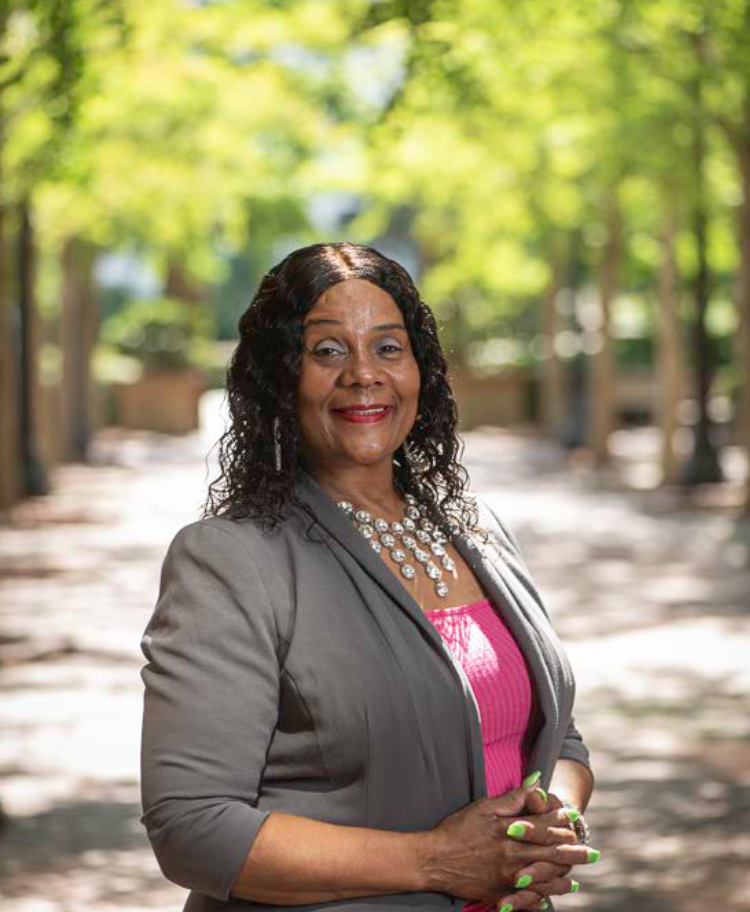
By Melanie Raskin
Vernita Frasier believes in “push power,” giving people the encouraging boost they need to pick themselves up and take action for their health and well-being. It’s a part of her personal mission to be a blessing: to serve, love and give. Frasier is a what’s called a supporter of health, a community health worker serving Winston-Salem, NC neighborhoods as a trusted, knowledgeable liaison between the health care system, social services and the community. Her job? To stand on the front line and address health inequities and barriers to care that everyday life throws at patients and facilitate access to key services, all while improving the quality and cultural competence of the health care system she represents.
A part of the Atrium Health Wake Forest Baptist Medical Center housekeeping department for 27 years, Frasier was identified as the perfect candidate for the supporter job because of her natural ability to connect with others. For Frasier, it was the transformation she’d been waiting for.
“I have a heart for God and a great passion for working with people, reaching them where they are without judgment and helping them get healthy.” Frasier says. “I love making people happy, seeing the joy on their faces and knowing that I’m the one who made a difference in their lives.”
According to Jeremy Moseley, associate vice-president for the Division of FaithHealth at Atrium Health/Wake Forest Baptist Medical Center, supporters venture beyond the integrated, team-based care approach of providing outreach, education, informal counseling, social support and advocacy. They are more than just full-time professional partners to the health care system and patients in the community. Their scope is broader than just assisting clients with medical appointments and medications, helping complete insurance paperwork, delivering food and making visits.
Walking in Their Shoes
“We often think we can hire people in certain roles, but it takes more than that,” Moseley says. “It takes people who have overcome challenges, who have similar cultural and ethnic backgrounds, who have lived in similar communities and know them at a deeper level beyond just the resources.”
Moseley points out that supporters are also empowered to give people a voice. “Our service goes 2 ways: Supporters inform individuals about health resources and provide encouragement and a helping hand, all while actively listening and keeping the health system up-to-date about the evolving community they are serving. A big part of the job is conversation and listening to what may be keeping patients from realizing their complete wholeness.”
Frasier remembers the anxious patient without health insurance who found a lump in her breast. She hadn’t seen a doctor in a long time because she had no money and thought she’d be turned away. Frasier evaluated the case, scheduled an appointment with a primary care provider at the free clinic, advised the patient to share with the clinician that she may need medicine for anxiety, asked for a referral for a mammogram and plugged the woman into social services to apply for Medicaid assistance. Thanks to Frasier’s “push power,” that patient is now doing well.
“All I did was listen and connect the dots,” Frasier says. “I told her I was here to help every step of the way and it was going to be OK.”
The FaithHealth philosophy of proactive mercy is better and cheaper than reactive charity. To Moseley, the focus is where it should be: on giving life, not on preventing mortality.
“Our motto is to get people to the right door at the right time, ready to be treated and not alone,” Frasier says. “Our supporters ensure patients also feel embraced and loved.”
